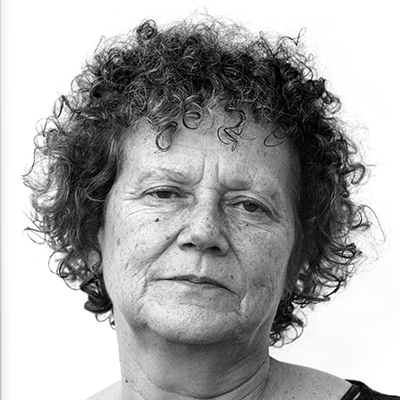The Poet’s Word
I was born in 1942 in Barcelona and have been living in Menorca for ten years now. In fact, I've gone back to my island origins since the family, on the paternal side, is from Mallorca, while my mother's side is from Reus, in the Camp de Tarragona region. I'm therefore a blend of cultures, island and peninsula but, in any case, always bathed in Mediterranean light.
Barcelona, 1942. Poet and history teacher
Along the lines of the framework that tends to be called "life and work" I can say that, until now, life has been long and the work rather short. I began to write with a view to publication at the age of forty and I'm a slow producer, setting things aside for a time and then more time, always afraid of making mistakes, never satisfied with first versions and repeatedly re-reading and correcting.
I shared my childhood with three other siblings, one of whom died, and our parents passed on to us good-heartedness, a great passion for books, and a love of words and knowledge. With such an initiation, you might imagine that my profession would be none other than to work in a secondary school, as a History teacher.
The first book I published, thanks to the "Rosa Leveroni" Prize, L'infant i la mort (The Child and Death – Columna, 1989) had a good response from the critics, who tend to be very tough with women who start late. One often finds the prejudiced notion that writing poetry is an alternative to doing embroidery, not that I have any disrespect for embroidery... What kind of scene would Ulysses have found if Penelope hadn't been able to weave during the day only to unpick it all at night?
The second book, Els ulls (The Eyes – Barcelona, Columna, "Àuria", 1995) has a different tone, not as elegiac as that of the first one, even though it retains the thematic constants of my relations with a world I consider my own, but perhaps it has tenderness because of distance. If we compare it with the genre of the comic, one could say that it is of sharper lines, as if the first vomit were more intense, this being something that tends to happen between the first creative impulse, with which it seems you have to express everything, and a second phase in which you permit yourself to use a filter. The titles and structuring of the books are somehow a summary of what I want to express with these remarks.
In any case, at no point do I attempt to repudiate the re-creation the reader makes of what I might write. I'm very aware that, when the book is in the hands of another, it is not I but the other person who takes over its construction/deconstruction and who interprets it. Sometimes we can be too faithful to the author in our reading or in interpreting a work of art, confusing academicism with pleasure. The book and, in particular, poetry enable us to engage in a relationship with our own solitude which, paradoxically, brings out our own company, the company we offer ourselves when we are reading, even when we are forsaken (as the great poet Rilke would say). Even if you don't read poetry, do read his Letters to a Young Poet.
To return to the story of Penelope, when does her cloth mean more, when she's weaving it or when she's unpicking it? When does a book have more entity, when the author's writing it or when the reader's reading it? In any case, once it is written, it is the reader's turn to speak.
Margarita Ballester
Three Poems by Margarita Ballester
"És el pes mort que no puc dir..."
És el pes mort que no puc dir,
com els germans que moren de petits
sense deixar la veu de la infantesa,
que em té lligada al temps del meu deliri.
I d'això escric, per desvetllar
l'ofensa de l'innocent: aquell recurs
de veure-hi clar. Mentre viatjo paral·lela al fons
d'arenes abissals, i no tinc ulls
només senyals en la tinta extrema dels teus llavis.
De L'infant i la mort (1989)
La dimensió vegetal del temps
La mort s'atura sobre meu;
no m'esparvera, cau més aviat
dins l'àmbit de la nosa.
I s'escola la vida sobrant
de moltes hores, marge avall,
i creix la mort als arbres
que sobreviuen a casa pròpia.
Ressona, en el meu cap, la dimensió
vegetal del temps que no viuré
ni escriuran per nosaltres:
el temps de les tortugues
i els bibliòfils.
De L'infant i la mort (1989)
Oració d'un agnòstic
Llepa'm com una flama
sobre el foc viu de tants amors
no retrobats en Tu sinó en ferides.
Deixa que parli el cor.
Fes-me silenci.
D'Els ulls (1995)
Paraula de poeta. Col·lecció Poemes Essencials, núm. 12 (Govern de les Illes Balears, 2001)




